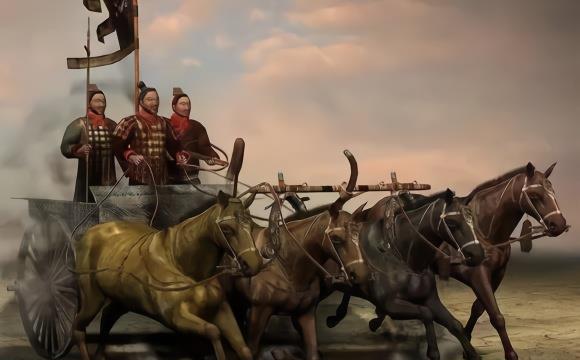
The military merit system of the Qin state could not allow the upper and lower classes to maintain the so-called mobility. This interpretation is actually an out-of-context interpretation of history itself.
The fundamental purpose was to tout the success of the Qin state, but did not touch the real reason. But this statement is very popular with the public, so it is taken by many people.
First of all, many people have a misunderstanding when trying to understand the Qin Dynasty's decapitation system.
Think it is enough to cut off the head of the opposing soldier. However, the Qin Dynasty's meritorious service regulations were very detailed, and the general soldier's first rank would only give you a reward or a reduction in the crimes committed. The only way to obtain a knighthood is to cut off the head of the opposing officer or low-ranking nobleman.
So, can the Qin army cut down enough noble heads in the war?
(
The risk of getting the first level is far greater than the gain
)
According to the standard set by Shang Martin, cutting off 2,000 heads in the field battle is a big victory that can make the whole army accept the reward together. Calculated based on the traditional Chinese five-person establishment,
A victory that could be awarded to the whole army would only allow 400 people to be knighted.
If you are one of the lucky ones who successfully killed a small nobleman of the enemy army, what awaits you may not be the imaginary Yoshida Miya, but a fight with your partner.
The unearthed Bamboo Jane of the Qin State records the vicious incident of qin soldiers murdering their colleagues in order to compete for heads.
There was actually an insurmountable gap between the aristocracy and the poor under the Qin system
Qi Jiguang, a famous general of the Ming Dynasty, also attacked the shortcomings of the decapitation system.
Because the first-level meritorious service system was by no means exclusive to the Qin army, the Ming Dynasty also implemented a simplified version of a similar system. As a result, every time a first-level was cut down, dozens of people came to repay the merits, and even disrupted the combat formation of the troops because they rushed to report the merits.
If you're really lucky and your companions are decent gentlemen, don't be too happy too soon. Because statisticians that you haven't passed yet.
You say that you are killing the nobleman driving opposite, not some unfortunate passerby, what do you take to prove yourself?
(
Blindly pursuing the first level in a chaotic battlefield is a very dangerous thing
)
In the Qin Dynasty, where the law was strict, if it was later confirmed that the fraud was falsified, not only would the person who reported the merit and his company be unlucky, but the statisticians would not be able to eat and walk.
Therefore, it is necessary to be cautious in treating the first rank of the nobility, and when the various certification procedures are completed, the yellow broccoli is almost cold.
If the above problems are solved, remember to receive them when they see them.
Because the general public's path to upgrading is very limited. The lords of the Qin Dynasty were divided into twenty levels, and the so-called "minjues" below the ninth rank were the so-called "minjues", and the general public would end up doing this. This is the upper limit given to you by the Qin state system, even if the goddess of luck takes care of you again, you can't go up. Unless you are a descendant of an aristocrat like Bai Qi, but for various reasons you have fallen. If there is no great ancestor, then the eighth level is over.
(Bai Qi's ancestors are generally considered to be the Qin army general Bai Yibing, and some people think that it is Bai Gongsheng.) However, in the Warring States period, people with clear surnames and surnames were definitely descendants of nobles)
Maybe you think it's enough to get a lower knighthood. But remember, in the Qin Dynasty, the title was only an identity, and it was possible to have more servants and land products, but the old could not participate in the administration of the state.
The bureaucracy of the Qin Dynasty was still an ancient recommendation system, and if you want to ascend to the throne, you must be appreciated and trusted by people with status. It is as difficult for the average person who has nothing to do with it to get a recommendation. Because if you don't do well, the sponsor will also be punished, and what qualifications do unrelated civilians have to let people risk it for you?
The Qin Dynasty was such a dynasty that took huge amounts from the middle and lower classes, but gave very little. Wanting to enjoy the convenience of mobility of different classes in such an era is tantamount to a fool's dream!